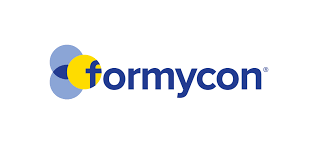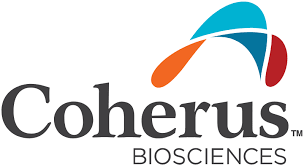- Bone Health
- Immunology
- Hematology
- Respiratory
- Dermatology
- Diabetes
- Gastroenterology
- Neurology
- Oncology
- Ophthalmology
- Rare Disease
- Rheumatology
Formycon and Bioeq Update on Ranibizumab BLA, and Coherus Reports Earnings
After a delay caused by a manufacturing shift, Formycon and Bioeq are back on track with their ranibizumab biologics license application (BLA), and their partner Coherus BioSciences is aligned for US commercialization.
Formycon and Bioeq have resubmitted their biologics license application (BLA) for a ranibizumab biosimilar candidate. A resubmission became necessary in early 2020 after the FDA asked for more information about the manufacturing process involved in producing the biosimilar candidate, which would be used for the treatment of macular degeneration.
The biosimilar candidate (FYB201) would reference Lucentis. In a previous update on the regulatory review process, Formycon and Bioeq explained that some processing equipment had been shifted to a different location in compliance with a request from European Union health authorities. Subtle changes in manufacturing process can affect the quality of biologics, although Formycon and Bioeq stated last year that the manufacturing change did not affect product quality or other product characteristics. Their BLA was withdrawn while they compiled the additional data requested by the FDA.
In their November 2020 update, the companies said they had hoped to resubmit their BLA in the first half of 2021 and did not anticipate that the resubmission process would change their timing for the launch of FYB201 in the United States or the European Union.
A mid-2022 FDA decision is anticipated on the application, according to Coherus BioSciences, which will serve as a US distribution partner in the commercialization effort, based on a 2019 agreement. Coherus is anticipating a launch on or after July 1, 2023, if the ranibizumab biosimilar candidate is approved.
Ranibizumab is used in the treatment of wet age-related macular degeneration, diabetic macular edema, diabetic retinopathy, myopic choroidal neovascularization, and macular edema following retinal vein occlusion.
In its second quarter earnings report issued this week, Coherus said its adalimumab biosimilar candidate (CHS-1420) remains under FDA review for approval and a December decision from that regulatory agency is anticipated.
Udenyca is the company’s sole current source of revenues, and Coherus reported net revenue of $87.6 million from second quarter 2021 sales of the pegfilgrastim biosimilar, although the company’s heavy investment in research and development and its regulatory licensing expense drove it to a loss of $29.9 million for the quarter. The comparable figures for the year-ago quarter were $135.7 million in Udenyca revenues and a net profit of $59.0 million.
Coherus also has a biosimilar bevacizumab candidate (CHS-305) under development in collaboration with Innovent Biologics. A pharmacokinetic study is underway to support a planned BLA application.
Newsletter
Where clinical, regulatory, and economic perspectives converge—sign up for Center for Biosimilars® emails to get expert insights on emerging treatment paradigms, biosimilar policy, and real-world outcomes that shape patient care.



